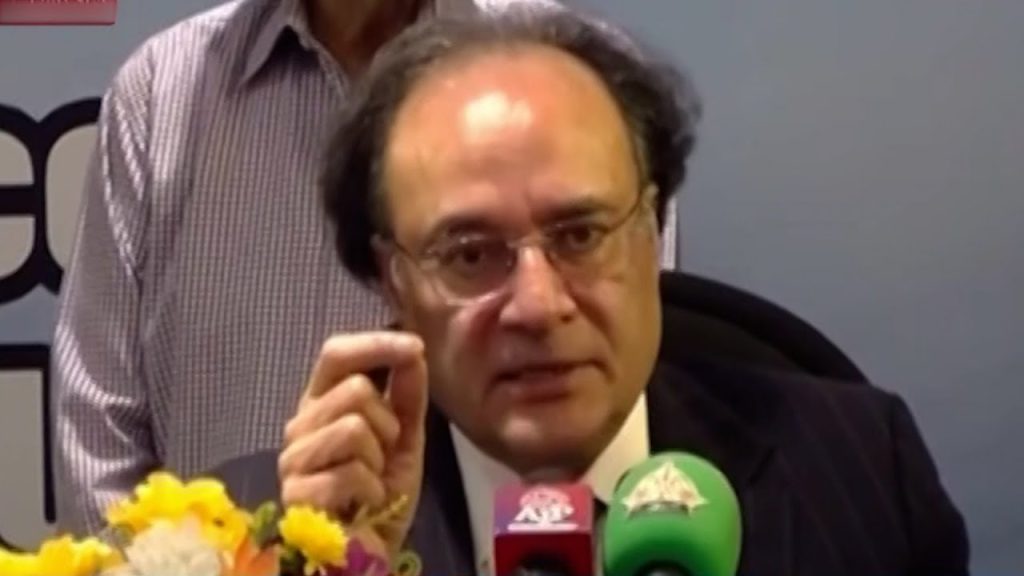Finance Minister Muhammad Aurangzeb said on Wednesday that the government is moving towards the deregulation of the sugar and wheat sectors, while addressing members of the Karachi Chamber of Commerce & Industry (KCCI).
“Both sugar and wheat are moving towards deregulation. However, this has to be end-to-end. The government needs to get out of the entire value chain, and that is where we are heading,” he said.
The finance minister highlighted that tax policy formulation has been separated from the Federal Board of Revenue (FBR) and moved to the Finance Division. “The budget for the upcoming fiscal year will be prepared by the tax policy office, not FBR,” he said.
This would address long-standing complaints from the business community regarding policy inconsistency, he said, adding that tax reforms are being carried out in consultations with the business community.
Blue economy a ‘game changer’ with $100bn potential for Pakistan: Aurangzeb
Aurangzeb said that the government intends to achieve export-led growth, for which “every single sector has to export”.
“Whether it’s 2%, 5% or 10% sectors have to export, only then can we say they are competitive,” he said.
The minister maintained that the government remains committed to achieving sustainable government.
He said Prime Minister Shehbaz Sharif recently formed eight new working groups to address challenges facing Pakistan’s industries and exports.
“As we go forward, the representation of chambers should also be part of these consultative groups,” he added.
These groups were created in October 2025 in consultation with the business community, and they include representatives from various industries, government officials, and members of the Special Investment Facilitation Council (SIFC).
Aurangzeb said that the government aims to reduce tariffs on industrial raw materials and their intermediaries to boost exports.
He maintained that the textile sector remains the backbone of Pakistan’s export base, while the IT and pharmaceutical sectors have registered significant growth in the recent period.
The finance minister said that discussion on revisiting the provincial shares in the federal divisible pool resources would take place at the upcoming meeting of the National Finance Commission (NFC).
On the Reko Diq project, Aurangzeb said operations are expected to commence in 2028, with the country’s first export valued at around $2.8 billion.
“Reko Diq will prove to be a milestone for the country’s economy.”
He said that macroeconomic stability and geopolitical tailwinds have created “a fantastic opportunity for Pakistan” to accelerate economic growth and attract foreign investments.


